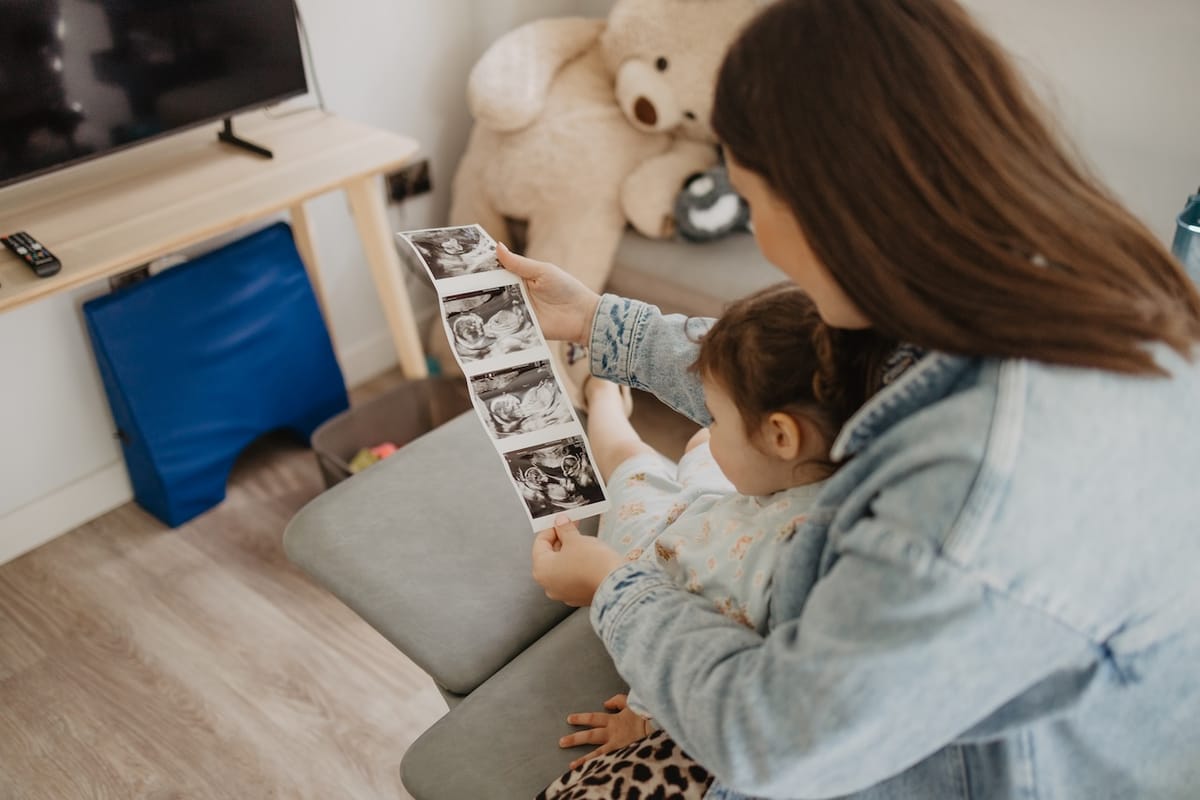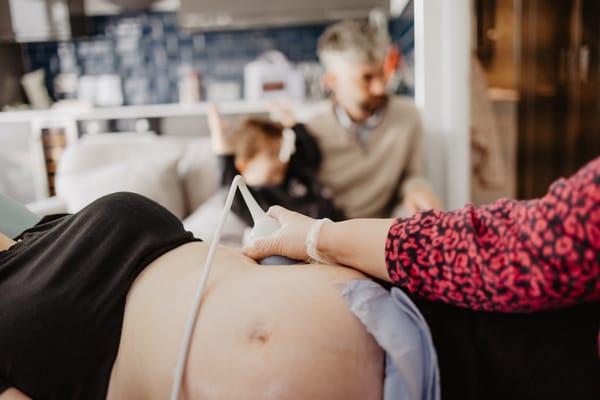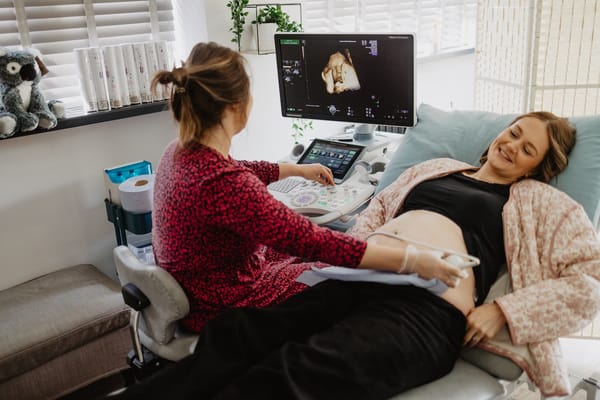When Will You Have Your First NHS Pregnancy Scan?

By Maria Birch, UK-Registered Obstetric Sonographer
Last updated: 2nd July 2025
If you’re newly pregnant, you’re probably wondering:
“When will I have my first scan on the NHS?”
The short answer:
🗓️ Your first routine NHS scan usually happens between 11 and 14 weeks of pregnancy.
This is often referred to as the “dating scan” or “12-week scan”, and it’s one of the most important early milestones in pregnancy care.
Let’s look at what this scan involves, why the timing matters—and what to do if you’re anxious while waiting.
What Is the 12-Week Scan?
Your first NHS scan has two key purposes:
- Dating the pregnancy — measuring your baby to estimate how far along you are and calculate your due date
- Screening (if you opt in) — combining ultrasound and blood test results to assess the chance of chromosomal conditions like Down’s syndrome, Edwards’ syndrome, and Patau’s syndrome
This is why the timing matters. The combined screening can only be performed between 11 weeks and 13 weeks + 6 days gestation.
Why Is the Timing Between 10 and 14 Weeks?
NHS guidelines say this scan should be done between 10 and 14 weeks, but most hospitals aim for 11–13 weeks, as this is:
- The best time to measure baby’s crown-rump length (CRL)
- The ideal window for combined screening
- Still early enough to confirm viability and detect major concerns
The 4-week window gives your local maternity unit some flexibility, especially during periods of staff shortages or high demand. If services are running smoothly, you may be offered an appointment closer to 10 weeks. If things are stretched, it might be closer to 13 or 14.
From a medical point of view, there’s usually no disadvantage to having the scan a little earlier or later—as long as it’s within the recommended range.
What If You’re Experiencing Pain or Bleeding?
If you have any of the following symptoms in early pregnancy:
- Vaginal bleeding (light or heavy)
- Lower abdominal pain or cramping
- Feeling faint or unwell
You should contact your:
- Midwife or GP
- 111 (UK) if unsure
- A&E for urgent or severe symptoms
Depending on your history and symptoms, you may be referred to an Early Pregnancy Unit (EPU) for an earlier scan.
Can You Have a Scan Before 10 Weeks?
The NHS does not routinely offer reassurance scans before 10 weeks unless there are medical concerns. But many parents find the wait to the first scan stressful and uncertain—especially after fertility treatment, previous loss, or early pregnancy anxiety.
This is where private early pregnancy scans can be helpful.
A well-timed private scan (usually from 7–8 weeks onward) can confirm:
- Your baby’s heartbeat
- That the pregnancy is in the uterus (not ectopic)
- How far along you are
Why I Chose an Early Scan Myself
When I was pregnant with my daughter, Mabel, I booked a private scan before my NHS appointment.
Even as a sonographer myself, the reassurance of seeing a heartbeat and knowing the pregnancy was progressing gave me space to relax and enjoy the weeks that followed.
It’s also one of the reasons I founded Sneak-A-Peek Ultrasound—to provide calm, expert reassurance during the anxious early weeks. I’ve since supported hundreds of women in early pregnancy, and it remains one of the most rewarding parts of my work.
Summary: When to Expect Your First NHS Scan
|
Scan Type |
Offered When |
Purpose |
|---|---|---|
|
12-Week NHS Scan |
11–14 weeks (ideally) |
Dating + optional chromosomal screening |
|
Early NHS Scan |
Any time if medically indicated |
Reassurance or urgent review for pain/bleeding |
|
Private Early Scan |
6–10 weeks (if needed) |
Reassurance, viability, gestation check |
Reassurance When You Need It
If you’re waiting for your NHS scan and feeling uncertain, know this:
- You’re not alone
- Early anxiety is very common
- And help is available—whether through your NHS team or a qualified private sonographer
To help plan your journey, download this free guide on our sister site, The Scan Lady:
🎁 Your Pregnancy Scan Timeline
A simple, expert-backed overview of what scans you can have, when, and why each one matters.





